
THE VOICE OF INTERNATIONAL LITHUANIA
|
VilNews has its own Google archive! Type a word in the above search box to find any article.
You can also follow us on Facebook. We have two different pages. Click to open and join.
|
Front page
- Posted by - (0) Comment
Small towns in today’s Lithuania:
CRIME AND DECAY
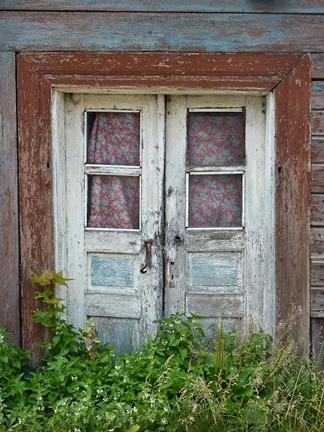
Text: Aage Myhre, VilNews Editor-in-Chief
Every third year or so I go to visit some acquaintances in one of Lithuania's small towns. A few days ago it was again time to see these exceptionally friendly, nice people, and my little family and I were as always very much welcome guests at the home of our small-town friends when we arrived at the gate in front of their house.
When we last were there, in 2007, this was a family and a society that seemed to be in peaceful harmony. A little sleepy, yet idyllic atmosphere prevailed in both the home and the small town at that time.
No longer so.
“Criminal gangs appear to be about to take over in such a way that we, the law-abiding citizens no longer feel safe neither in the streets nor in our homes. Last night, for example, we were out at a restaurant just ten minutes walk from our house. When it was time to go home, it was already dark outside, and as the situation here has become so bad over the past couple of years we dared not walk, we felt we had no other choice than to take a taxi the few hundred meters back to our home. "
She speaks softly, sad and with deep seriousness in her voice as she explains the situation to us, this gentle woman who has lived in this town all her lifetime. Here she gave birth to and raised her now grown children who have given her great grandchildren whom she talks about with great pride in her voice, still expressing deep concerns on how it will be for them to experience an environment like this during their years of childhood and youth.
- Bookmark :
- Digg
- del.icio.us
- Stumbleupon
- Redit it
- Posted by - (0) Comment
Because of the Jewish Holocaust during the Second World War Lithuania lost over 90 per cent of the Jewish community. In 1994, 23 September was declared National Memorial Day for the Genocide Victims of the Lithuanian Jews to commemorate the liquidation of the Vilnius Ghetto on that day in 1943. Many events are held to commemorate 23 September in different institutions of Lithuania every year. |
I just want respect
for murdered Jews
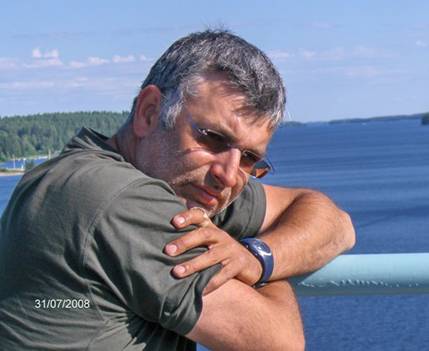
Sergejus Kanovičius
OPINION: By Sergejus Kanovičius
Very recently I looked at the Delfi.lt webpage and could barely hold back the tears watching one of the episodes of Mission Siberia (http://tv.delfi.lt/video/ST5zL0DJ) which aired this year, an interview with Lithuanians who have lived [in Siberia] eight decades now, unable to speak Lithuanian and explaining why they who have lived their entire lives in Siberia see no sense nor opportunity to return to Lithuania…I was saddened because of the tragedy of their lives, but at the same time I was glad that they are alive and healthy.
I remember how one of my best friends, the poet Liudvikas Jakimavicius, used to tell me during long evenings at his farm about the oppressions his family experienced, how his parents shared one cattle wagon with a Jewish boy named Harry, whom everyone called Garik. How Joske who spent the years of exile together with Liudvikas’s family, always used to send packages from far-off Israel with instant coffee and other items unavailable in the dying Soviet empire.
I told Liudvikas about my almost completely butchered family. It was painful for both of us, we empathized with one another and tried to understand the other’s pain and shared our grief until his pain and heartbreak became my pain, and the suffering he and his family experienced became mine as well.
- Bookmark :
- Digg
- del.icio.us
- Stumbleupon
- Redit it
Is there a new role for Lithuanian-Americans?
- Posted by - (1) Comment

Members of 'The Lithuanian-American Community
protest outside the Capitol in Washington in 1990, against
Soviet President Gorbachev's policy regarding the
Baltic States. They played a real role by then.
Is there still a role for them to play?
Photo: UPI, Joe Mahoney.
Lithuanian Americans have always found themselves as defenders of the ideas and ideals of both Lithuania and their adopted country, the United States. During the years of Soviet occupation, Lithuanian Americans played a key role in keeping hope alive. Without the actions of Lithuanian Americans, there would not have been a non-recognition policy, and without the hard work of so many Lithuanian Americans past and present that policy would not have served as the beacon of hope it was for Lithuanians in Lithuania.
Not surprisingly, many Lithuanian Americans concluded at the time of the end of Soviet occupation that their job was completed. After all, what they had done for more than 50 years was little short of heroic. And there was the additional and for some extremely painful fact that many in Lithuania itself felt that the diaspora had made its contribution but that Lithuanian-Lithuanians must now take the lead in the future development of their country.
As a result, many Lithuanian Americans have ended or at least reduced their participation in public life. Now, this withdrawal from public life threatens to become a stampede. Lithuania has become a member of NATO, a step that many have seen as the final guarantee of its independence and security. And Lithuania has joined the European Union, another step toward the reintegration of Lithuania into the European world from which it was so brutally wrenched by the Soviet government in 1940.
But these events should not be the “end of history”, there are many serious challenges ahead both for Lithuania and for Lithuanian Americans, all of us who care about Lithuania may have to work harder than we ever did in the past.
The Soviet occupation of the Baltic countries continues to cast a shadow on the political calculations in Moscow and in the minds of many Lithuanians, and because this is so, Lithuanian Americans have a special role to play in dispelling both these shadows.
I don’t think it is an exaggeration to say that had there not been a Lithuanian diaspora, the Soviet government might have survived far longer than it did. Now, it is imperative that Lithuanian Americans again play the key role in making sure that Lithuania will not suffer because of such actions. And that includes not only telling the West but making sure that people in Lithuania understand what is at stake as well.
Lithuanian Americans have played a key role in fighting the hangover of the communist past, and we can all be proud of the role that Lithuanian Americans have played. I believe that Lithuanian Americans can make a significant contribution also to the future. But we need to recognize that the threats to that future are real and that Lithuanian Americans need to act as they have in the past.
Egle Dudenas
Egle Dudenas wrote this article in 2005, but her points are as good today as they were by then. VilNews is hereby inviting our readers to comment on this important topic.
Click here if you wish to read this article on white background
- Bookmark :
- Digg
- del.icio.us
- Stumbleupon
- Redit it
Economic growth in a multispeed world
- Posted by - (0) Comment
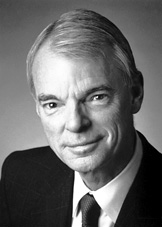
Professor Michael Spence,
recipient of the 2001 Nobel Memorial
Prize in Economic Sciences
A review of:
Michael Spence, The Next Convergence: The Future of Economic Growth in a Multispeed World. New York: Farrar, Straus and Giroux 2011. xvi+296 pages.
The book is a product of the independent High Level Commission on Growth and Development that completed its work in 2010. Members of the Commission included leaders of social and economic transformations internationally and top global experts such as Robert Solow, the father of modern growth theory, and Mohamed El-Erian, CEO of Pimco. Prof. Michael Spence, the 2001 Nobelist in Economics, chaired this unique effort.
The reading of this book is a humbling experience. The reader is immediately hit by the vast intellectual expanse of the topic and the Author’s Nobel winning theoretical brilliance combined with his “hands-on” practical-analytical, integrative, and simplifying capabilities keeping the argumentation both rigorous and free from the rather unnecessary technical jargon.
Valdas Samonis
Institute for New Economic Thinking, New York City
and SEMI Online, Toronto
- Bookmark :
- Digg
- del.icio.us
- Stumbleupon
- Redit it
- Posted by - (1) Comment
Remembering
Darius and Girenas
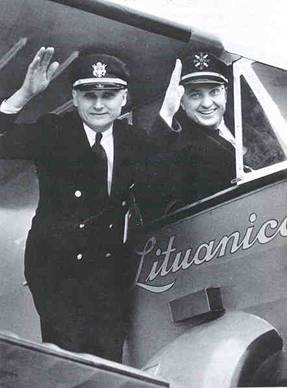
The American-Lithuanian pilots, Steponas Darius (1896-1933) and Stasys Girenas (1893-1933) attempted in the year 1933 to beat Charles Lindberg’s non-stop distance record across the Atlantic by flying from New York City to Kaunas, then the temporary capital of Lithuania.
Their plane, Lituanica, was an Bellanca CH-300 Pacemaker airplane. After successfully flying 6,411 km, it crashed, 650 km from its destination, Kaunas. Both pilots were killed.
Movie clip from the crash scene.
- Bookmark :
- Digg
- del.icio.us
- Stumbleupon
- Redit it
- Posted by - (0) Comment
A manager’s biggest sin is doing nothing
SEMINAR:
Enterprise management in unstable economy:
What is important for you as a manager to know?
Hotel Villon le Meridien, 29 September, 9 a.m. – 5 p.m.
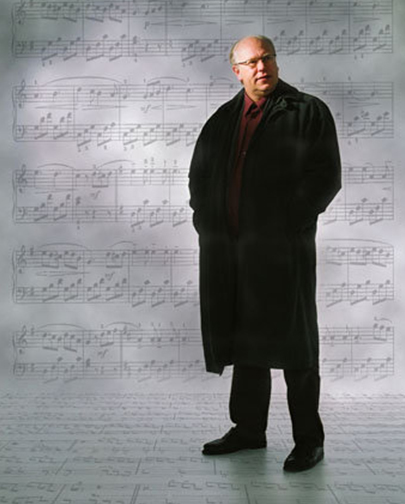
By Ulf Hallan, President of European Leadership Institute
If you are going to participate in one seminar this autumn, let it be this one. Not for yourself, but for the future of your company!
The dark clouds are arising again over the World Economy. Uncertainty and fear of the future do not only scare the World Leaders. They are trying to act now to save us from a new recession.
This situation does not only call for action from politicians. You, as a manager have a responsibility to make the right decisions now for your company.
But what are the right decisions? Should we cut costs or invest? Should we downsize or expand? What are the most necessary actions to be taken by you as a manager in the current situation?
Some say that the biggest sin a manager can commit is doing nothing. Your actions today have their consequences a year from now. And maybe in two and three years.
- Bookmark :
- Digg
- del.icio.us
- Stumbleupon
- Redit it
- Posted by - (0) Comment

Lithuania has an amazing 700-year history as an international melting pot. This has been especially evident since 1323, the year Grand Duke Gediminas founded Vilnius as Lithuania’s capital city and immediately decided to invite merchants, craftsmen, bankers, farmers, and soldiers from all Europe to come to the new capital, guaranteeing all freedom of beliefs and good working conditions. Vilnius became international, though with less of German or Scandinavian influence, as one could expect, rather influenced by Italy and Mediterranean ideas – greatly different from the other two Baltic capitals where Hanseatic influence became dominant.
VilNews will over some time this autumn publish articles about impacts of foreign nations and cultures here. We also welcome you, dear readers, to share with us information you may have about ‘foreign footprints in Lithuania’.
THE DANES AND THE BALTS
A thousand years of coexistence

Danish sugar produced in Lithuania.
Text: Kaare E. Janson
From the time of the Vikings, more than a 1000 years ago, the neighbouring Baltic Sea and the various ethnic tribes that lived about its shores attracted the interest of the seafaring Danes. In due course trade with these tribes began. But it was a bellicose time when stronger nations sought to extend their domains by conquest. These pagan tribes possessed great forests and to lay claim to them the Danes fought the Germans, the Swedes, the Finns, the Russians, the Estonians, the Latvians, the Prussians, and the Poles - but never the Lithuanians. In fact, after Europe recognized Lithuania as an independent state and even later, when it formed a union with Poland, Lithuania and Denmark from time to time formed alliances to defend themselves from their common foes – the Germans, the Swedes, and the Russians.
- Bookmark :
- Digg
- del.icio.us
- Stumbleupon
- Redit it
- Posted by - (0) Comment
While we shelled
beans with him
an interview of Myra Sklarew
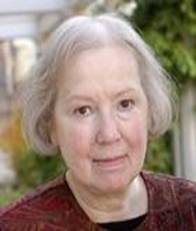
By Ellen Cassedy
ellen@ellencassedy.com
Myra Sklarew is the author of numerous books of poetry, including The Witness Trees, a powerful account of how she forged – and is still forging – a connection to her Jewish heritage in Lithuania. VilNews correspondent Ellen Cassedy spoke with Sklarew in Washington, D.C.
Myra, you have visited Lithuania twelve times in 18 years. What first drew you to the land of your ancestors?
In 1993, it occurred to me that with the end of the Soviet occupation, I could walk freely. I went with no knowledge. I didn’t know a soul and didn’t know the language. I just started walking.

Let’s listen to how you put it in The Witness Trees, your book-length poem with a Yiddish translation by the noted late Yiddish poet David Wolpe (a member of your Lithuanian Jewish family who immigrated to South Africa):
I wanted to go there
by feel, to see if Lithuania would tell me
its secrets, to see if I would
recognize myself in Lithuania, to marry the myth
of who I am with the myth of place. To find more
than the signs of the dead. To find evidence
of the lives of those I have come from.
- Bookmark :
- Digg
- del.icio.us
- Stumbleupon
- Redit it
- Posted by - (1) Comment
The Lithuanian –
Canadian Community is
alive and well

Ambassador Ginte Damusis with speakers at the 14 May meeting of Lithuanian Honorary Consuls in Canada and the Lithuanian Embassy Advisory Group for Promoting Scientific Cooperation between Lithuania and Canada , Toronto , Ontario.
News from the Canada : Science informs good Public Policy
The Lithuanian – Canadian Community is alive and well. When the call came from Ambassador Ginte Damusis to attend a meeting of the Lithuanian Honorary Consuls in Canada , academics and senior public executives from the Ontario Government , over 40 participants from 5 universities in Canada , USA and Lithuania assembled in Toronto on 14 May 2011 . The question addressed by the distinguished panels: How public policy supports or creates barriers to science and innovation.
The Director of Sunrise Valley, Andrius Bagdonas updated the group on Lithuanian’s science valleys. And a new Lithuanian- Canadian academic network was created under the leadership of Dr. Victor Snieckus , Queen’s University , Kingston , Ontario . A good start to ensure networks between our two great countries yields value for both As a consequence of the network and the efforts of Honorary Consul Paul Kuras , Dr Mindaugas Kiškis, of Mykolas Romeris University attended discussion on e-business and intellectual property rights at Queen’s University and requested, in view of his original studies in chemistry, to visit the Snieckus laboratories (see 031 and 035 jpgs). More exciting news in the wings – Second generation Lithuanian Canadian , Peter Pakalnis has set up a Lithuanian – Canadian Student Association at Queen’s University and will be recruiting interested students next week as university starts its new academic year . A third year political science student , Peter fell in love with Vilnius last summer after a first ever trip to his ancestral home.
Networking academics, public servants and young professional interested in building a new future for Lithuania is surely a good start !
Victor Vytautas Pakalnis , P.Eng. , MBA , M.Eng.
Professor, Kinross Professorship in Mining & Sustainability
Queen's University ,Kingston , Ontario Canada
follow me on twitter @vpakalnis
- Bookmark :
- Digg
- del.icio.us
- Stumbleupon
- Redit it
- Posted by - (0) Comment
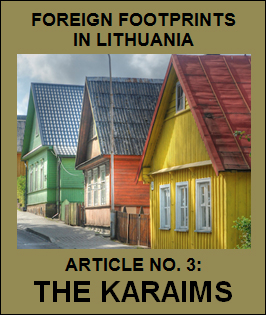
Lithuania has an amazing 700-year history as an international melting pot. This has been especially evident since 1323, the year Grand Duke Gediminas founded Vilnius as Lithuania’s capital city and immediately decided to invite merchants, craftsmen, bankers, farmers, and soldiers from all Europe to come to the new capital, guaranteeing all freedom of beliefs and good working conditions. Vilnius became international, though with less of German or Scandinavian influence, as one could expect, rather influenced by Italy and Mediterranean ideas – greatly different from the other two Baltic capitals where Hanseatic influence became dominant.
VilNews will over some time this autumn publish articles about impacts of foreign nations and cultures here. We also welcome you, dear readers, to share with us information you may have about ‘foreign footprints in Lithuania’.
Karaims – Turkic tribe that found a new home in Lithuania
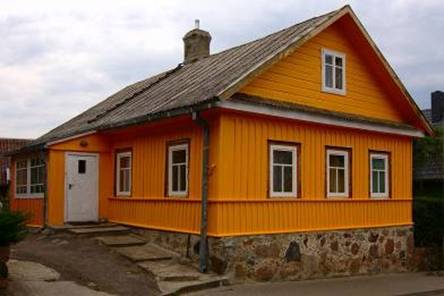
Karaim house in Trakai, 30 km from Vilnius.
The Karaims represent the smallest ethnic group in Lithuania, inextricably linked with the Crimean victories of Grand Duke Vytautas who brought 380 Karaim families to his castle in Trakai back in the 1390s.
During the 600 years that they have lived in Lithuania, this small Turkic people have preserved a strong national consciousness. A rather inward-looking community life, firm moral principles based on the teachings of the Karaim religion, and steadfast adherence to tradition - all these things have contributed to the survival of the people, of their basic characteristics, such as language, customs, and rituals, and thus, of their national identity. What also helped the Karaims of Lithuania survive under difficult conditions was the tolerance and respect for them expressed during all those centuries not only in the everyday contacts between people but also in the official state documents of various periods.
An exceptional period in the history of Lithuanian Karaims was the Soviet occupation, which thoroughly shook up the accustomed foundations of Karaim community life. The consequences of that time, which are still felt today, make it much more difficult for people to "return to their roots," to the rhythms of their national life.
Many world scholars are interested in the cultural heritage that Lithuanian Karaims have preserved to the present day. The still living Karaim language, which belongs to the West Kipchak subgroup of the Turkic family of languages, receives the most attention. It is being studied from several angles - as a language that has preserved rare old forms and words that have disappeared from other languages of the Turkic family and also as one that has borrowed and in its own way adapted some features of vocabulary and syntax from neighbouring languages (Lithuanian, Russian, and Polish).
- Bookmark :
- Digg
- del.icio.us
- Stumbleupon
- Redit it
Arrogance, ignorance & an airport comparison
- Posted by - (0) Comment
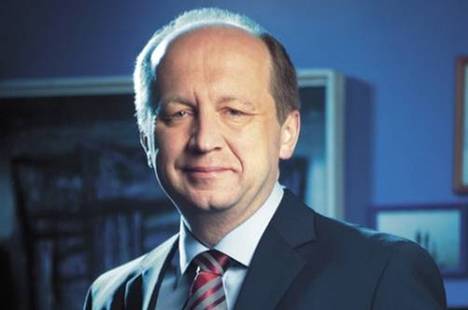
Lithuania’s Prime Minister, Andrius Kubilius.
Arrogance and ignorance are not particularly positive characteristics of anyone, and I understand it well if some of our VilNews' readers, who see that I use these words together with a picture of our Prime Minister, predict that I will now be criticising him. So let me hurry to say that these two words are meant for all questionable behaviours seen performed by our governing forces since 1990, not solely for Mr. Kubilius.
I must admit that I over the past 20 years have seen a few Lithuanian leaders whose arrogance and belief in their own excellence in some cases have prevented progression and good development for Lithuania. Still today I miss leaders who are good at listening to their own Lithuanian people, wherever in the world they may live, and I miss leaders able to inspire and be unifying figures and good examples for the nation they are appointed to serve. Leaders able to lead, not only manage.
I have also very much been missing to see our leaders seek advice from other countries and its own diasporas; to learn from mistakes and experiences these nations went through during the years when Lithuania was still under Soviet rule. Instead, time after time, we have seen Lithuanian leaders trying to reinvent the wheel.
PM Kubilius' profound measures for savings and cuts during the very serious financial crisis Lithuania still experiences, is for me an example of just that. In my opinion, the type of medicine he has been using is to compare to putting the brakes on for a car that already stands still, or closing the tap when the well is already empty.
Countries in Scandinavia and North-Western Europe have the background and resources to make cuts. Lithuania and other Eastern European countries are, after the long Soviet-era economic mismanagement, not in such a fortunate situation. Here most of the resources should have been spent on finding new fuel for the car and fresh spring water for the well.
Being a Norwegian, I believe Norway and the other Scandinavian countries would have been willing to stretch to great lengths to provide help and advice for the crisis-hit Lithuania and the two other Baltic States. But they had to be asked.
Our Lithuanian leaders should refrain from arrogance and avoid ignorance by seeking advice where good help and advice is to find, domestic and internationally. Can they do that, there is every reason to foresee a bright future for this nation.
The Lithuanian people deserve exactly that. They have suffered enough.
The airport comparison

Vilnius Airport’s terminal building from 1954 was built during Stalin’s last years.
It still remains the airport’s main face towards Vilnius City.
To make my above point more understandable, I will in the following compare post-war Lithuania to Vilnius Airport. Why? Well, they have more in common than you may think; metaphorically, symbolically and representatively for what has been going on here from WWII till today.
- Bookmark :
- Digg
- del.icio.us
- Stumbleupon
- Redit it
SUMMER SUMMARY
- Posted by - (0) Comment

Smoked fish in Nida.
One warm August evening I stood looking out over the Baltic Sea. I stood at the pier in the seaside resort of Palanga from where I caught the above motif through my camera lens. I thought of Palanga’s two great sons, Count Tiškevičius and Mayor Šliupas, who also certainly often were looking out to the endless waves rolling towards the white sandy beaches of Lithuania’s fantastic sea coast. I felt pleased that the summer in Lithuania this year had been pretty good and warm; the summer climate here is in fact normally very good.
And I thought that maybe the summer of 2011 will be remembered as a turning point - that perhaps now again better times are coming for Lithuania and the Lithuanian people.
I wish you, dear readers, a warm and successful autumn!
Aage Myhre, Editor-in-chief
aage.myhre@Vilnews.com
- Bookmark :
- Digg
- del.icio.us
- Stumbleupon
- Redit it
- Posted by - (0) Comment
Klaipėda ruled VilNews this summer
Klaipeda city and Lithuania's coastline made the summer's top stories in VilNews. Through more than a week we put the spotlight on good and less good aspects of what is happening out there on the Baltic Sea shore. Now, in the autumn, Kaunas and Vilnius will have our attention in a similar way, and we ask you all to come up with ideas and suggestions having to do with past and present of Lithuania’s two largest cities!
We know that many of our readers were on vacation when Klaipeda was treated in our columns. A summary of the articles follows, therefore, below.

|
Sunday 17 July |
||
|
KLAIPĖDA – the jewel in the amber crown |
Friedricho Pasažas – the new wonder of Klaipėda |
|
|
History of Klaipėda
|
Mare Suebicum |
|
|
Monday 18 July |
||
|
KLAIPĖDA MAYOR:
|
Radisson Blu Hotel, Klaipėda:
|
|
|
Tuesday 19 July |
||
|
Western Shipyard – from Soviet colossus to European greatness
|
Lido Marine – a Norwegian success story in Klaipėda
|
|
|
Wednesday 20 July |
||
|
KLAIPĖDA FREE ECONOMIC ZONE:
|
Next time you eat bacalao* in Spain or Italy |
|
|
Thursday 21 July |
||
|
Klaipedos Nafta has one of the most up-to-date oil terminals in Europe
|
The port of Klaipeda
|
|
|
WITH BOTH OIL AND LNG IN KLAIPĖDA:
|
||
|
Friday 22 July |
||
|
MEMEL CITY – A NEW 'CITY' AT KLAIPEDA'S SEA FRONT
|
4 trucks full of books every week
|
|
|
Saturday 23 July |
||
|
JAMES ANDREW CLARKE:
Click here to read the article
|
KLAIPĖDA SCIENCE And TECHNOLOGY PARK:
|
|
|
Sunday 24 July |
||
|
From Suriname to Klaipėda International Business Club
|
Klaipėda – a pioneer municipality in combating violence against women
Click here to read the article
|
|
To read all articles, go to our SECTION 9 – LITHUANIA TODAY.
- Bookmark :
- Digg
- del.icio.us
- Stumbleupon
- Redit it
VilNews e-magazine is published in Vilnius, Lithuania. Editor-in-Chief: Mr. Aage Myhre. Inquires to the editors: editor@VilNews.com.
Code of Ethics: See Section 2 – about VilNews. VilNews is not responsible for content on external links/web pages.
HOW TO ADVERTISE IN VILNEWS.
All content is copyrighted © 2011. UAB ‘VilNews’.

 Click on the buttons to open and read each of VilNews' 18 sub-sections
Click on the buttons to open and read each of VilNews' 18 sub-sections 











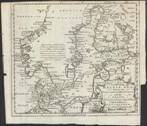
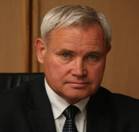
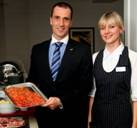
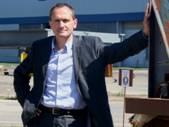
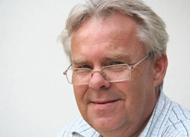


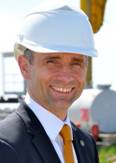
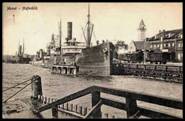
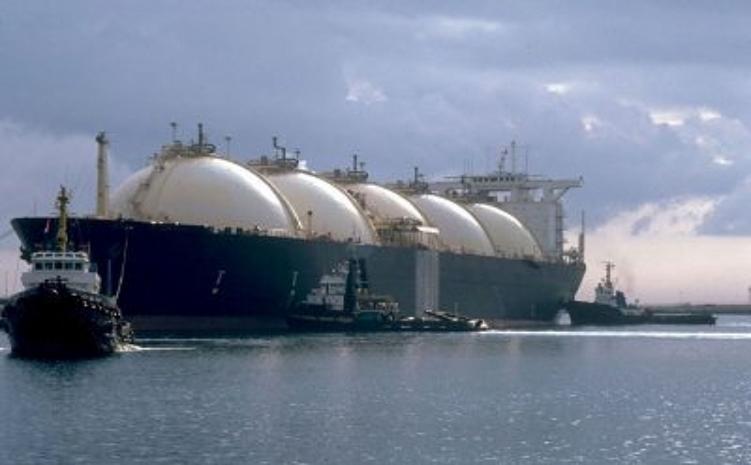




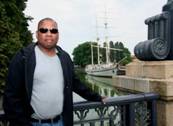
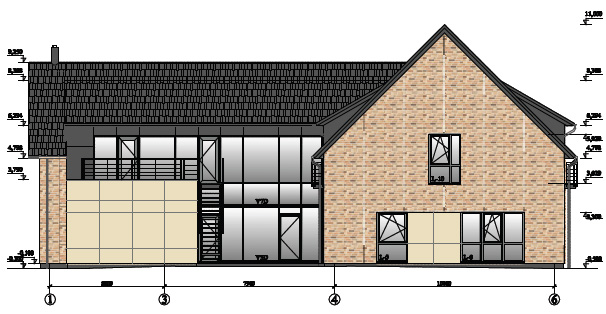









.jpg)



